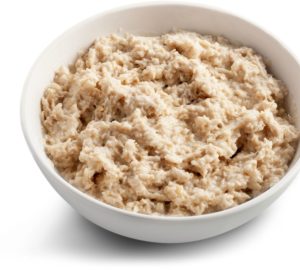
I used to gloat that my four-year-old would eat salad, but now I have a three-year-old who refuses anything green and is seriously challenging my best pediatric dietary practices. My four kids*, now one, three, six and eight-years-old, have each presented their own dietary challenges. Here are my tried-and-true tricks of the trade to get your kids to eat well.
Kids eat what you eat.
Healthy kids’ diets start with healthy parent’s diets. Parenting challenges us to become better people, even when it comes to our food. You already know that you can’t eat treats in front of your kids without them asking for some. Your long-term dietary habits will become those of your children. What are your dietary guilty pleasures? Do you want your kids to share them? If not, this may be your motivation to change.
Moms actually have higher body mass indexes and are more likely to drink sweetened drinks compared to women without children. Why? Because parenting is hard and moms need our pick-me-ups. If you just can’t give up a personal treat, save it for when you are alone. I have my stash of dark chocolate hidden on a top shelf in the kitchen.
Young kids will regulate their own calories.
Most toddlers have a built-in dietary trick: they actually auto-regulate their own calories. Toddlers will eat the same amount of calories each day whether those calories come from vegetables or cookies. So, if a toddler eats one 100 calorie cookie after lunch, they will eat about 100 calories less for dinner. Toddlers quickly learn to hold-out for their favorite foods, be it dessert, chicken nuggets, or macaroni and cheese, and they happily skip the vegetables. This is why toddlers are notoriously picky eaters. It’s also why obesity is less common in this age group.
Armed with this knowledge, I offered my picky three-year-old only oatmeal with fruit for breakfast and a healthy lunch and dinner that included vegetables. He started eating two or even three helpings of oatmeal for breakfast and simply skipped lunch. He’d skip dinner too if he talked someone into giving him a mid-afternoon snack, or if he got a free cookie from the grocery store or his sister’s soccer game. Now he’s only permitted one serving of oatmeal at breakfast and we try to leave him home from events that include free treats. Occasionally we give in. Yesterday we took him to a business picnic and he had his fill of junk food. He did start eating vegetables again about twenty-four hours later…
and dinner that included vegetables. He started eating two or even three helpings of oatmeal for breakfast and simply skipped lunch. He’d skip dinner too if he talked someone into giving him a mid-afternoon snack, or if he got a free cookie from the grocery store or his sister’s soccer game. Now he’s only permitted one serving of oatmeal at breakfast and we try to leave him home from events that include free treats. Occasionally we give in. Yesterday we took him to a business picnic and he had his fill of junk food. He did start eating vegetables again about twenty-four hours later…
Exposure, Exposure, Exposure.
Kids will eat almost anything if they are repeatedly exposed to it in a positive context. Let kids look at salad and green stuff on their plate every day. Talk about how good you think it tastes. Never force them to eat it. Usually, I eat my salad and then eat half of what I put on my kids’ plates. Eventually they will eat it, especially if they are not filling up on other calories.
Don’t let your kids drink their calories.
Sugary drinks are the fastest way to consume calories. In just a few seconds, a child can consume as many calories as a candy bar or fast-food hamburger. Most parents are good about limiting soda, but sports drinks, lemonade, iced tea and juice can be just as bad.
The recommended serving size of juice in a toddler diet is four ounces per day, according to the American Academy of Pediatrics. That is less that almost all juice boxes. “Mots for Tots” is a juice box brand targeted towards toddlers that provides watered down apple juice such that one-serving per day is still within the recommended range. But even when I bought these, I found my kids just begged for more. I recommend just cutting juice out of your regular diet. In our house, juice is a special treat reserved for birthday parties and other special events. What about vitamins? If your kids eat fruits and vegetables they will get plenty. If you are still worried about vitamins, try a kids multivitamin.
My salad-eating toddler became a school-aged child with an elevated BMI. How? He drank too much lemonade. A few years ago he talked me into buying lemonade drink-mix so our family could have a lemonade stand. They sold a few cups of lemonade and we spent a month using up the rest of the lemonade mix. It turned into habit and lemonade became a regular part of his diet. We limited quantities but our son started putting eight scoops of sugar-laden drink mix into six ounces of water. We didn’t recognize the problem until a doctor’s visit revealed a BMI more than two standard-deviations above the norm…
*I am now the mother to 7 children, all with their own dietary preferences. My tricks to get my kids to eat healthy still stand true.
This post appeared first on ChildrensMD.
Author: Dr. Kathleen Berchelmann, Pediatrician and Co-founder of MyCatholicDoctor
Editor: Samantha Wright, Marketing Director with MyCatholicDoctor
Make an appointment or send Dr. Berchelmann a message:
Leave a reply
